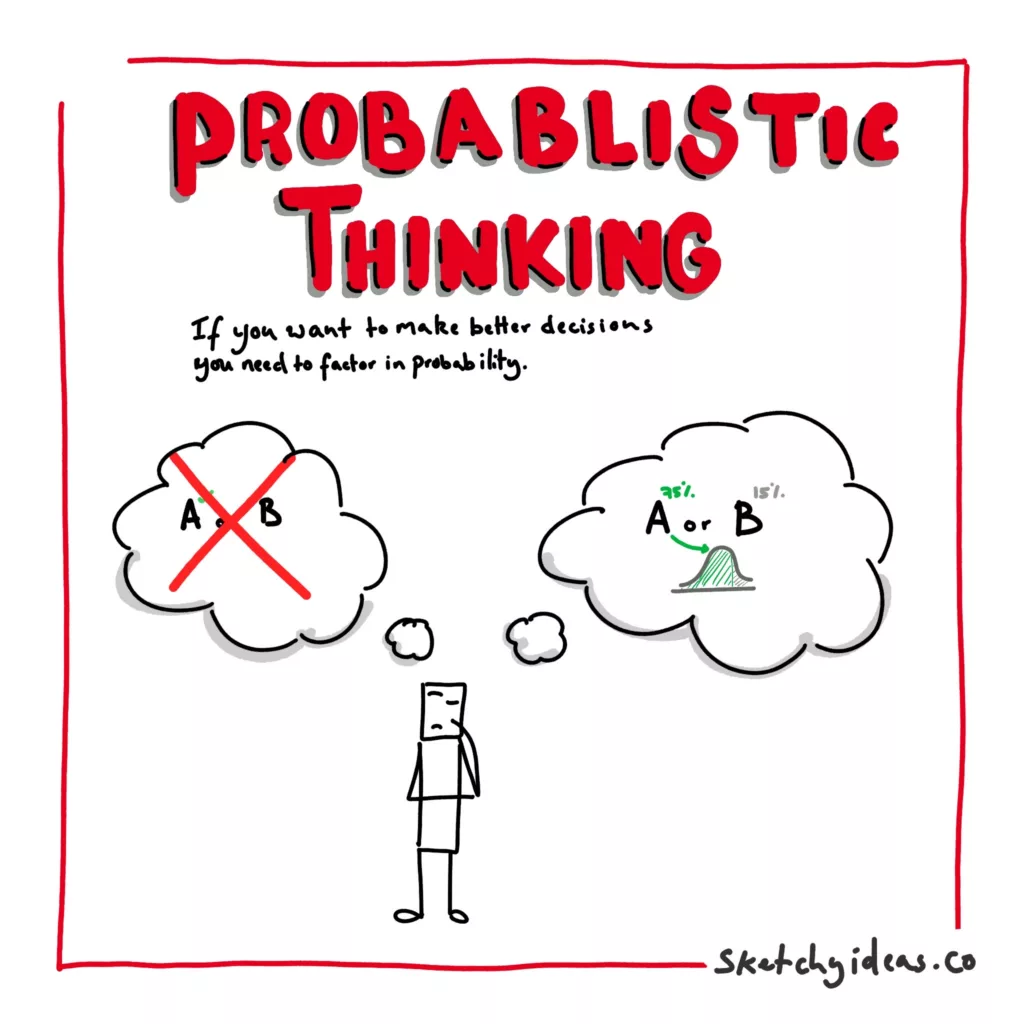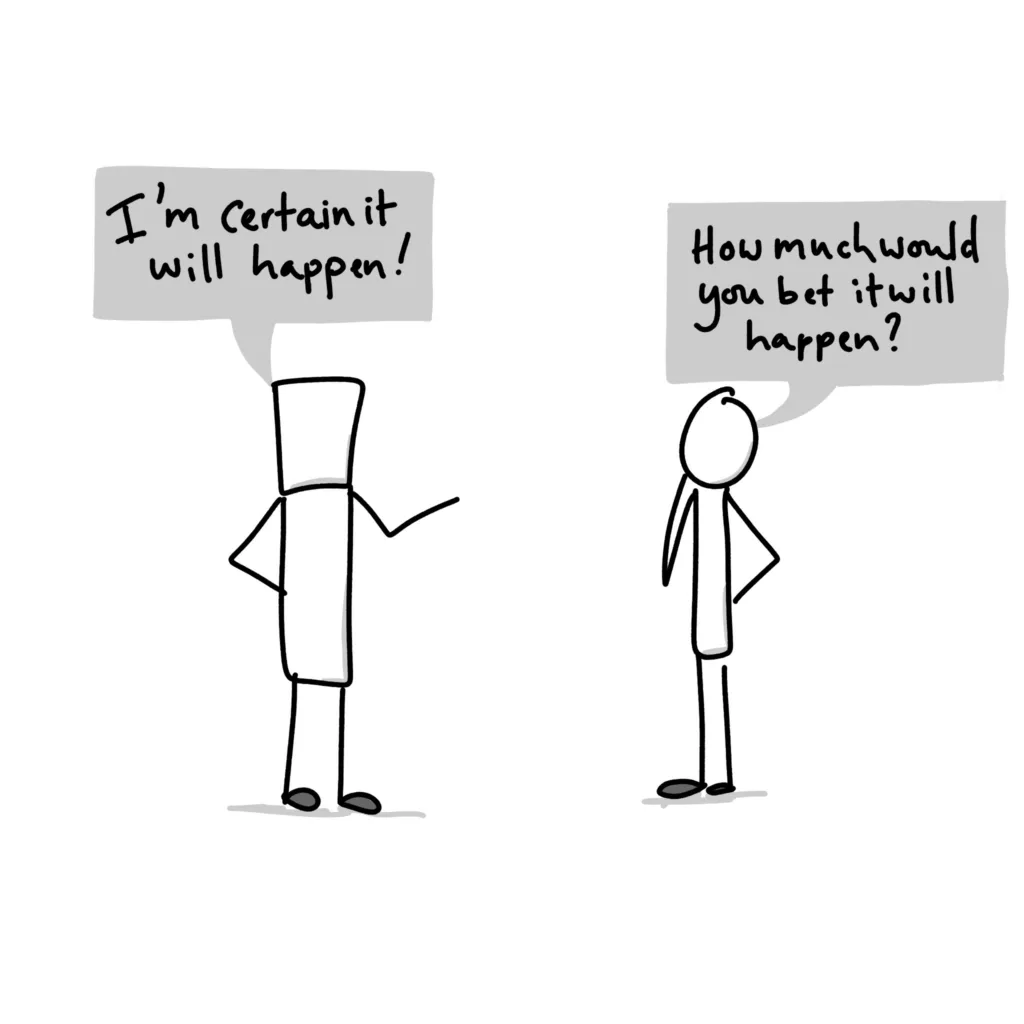Probabilistic thinking is a powerful mental model that allows us to make better decisions and navigate an uncertain world.
In our daily lives, we are constantly faced with decisions that involve varying degrees of uncertainty. Some are smaller, others bigger:
- choosing between job offers
- selecting where to eat out
- picking investments
All of them have variable risks and rewards and require us to make a decision without knowing everything. Probabilistic thinking helps us navigate our uncertainty and make better decisions.

What is probabilistic thinking?
Probabilistic thinking is the ability to make decisions based on the likelihood or probability of an event occurring. While events in our lives are binary (they either happen or don’t) our predictions about events should be based on probability. To do this correctly involves understanding the underlying probabilities that govern the outcomes of different situations and using that knowledge to make informed decisions.
Why it matters
Probabilistic thinking is essential because it helps us make better decisions in an uncertain world.
By understanding the probabilities that govern different situations, we can make more informed choices that are more likely to lead to positive outcomes. Without probabilistic thinking, we are more likely to make decisions based on incomplete information or irrational biases. This can lead to poor outcomes and missed opportunities.
How to adopt it in your day-to-day life
Here are some simple ways to adopt probabilistic thinking in your daily life:
Estimate probabilities:
A lot of the time we simply go with what we think is “the best” option.
This usually really means “the best possible option” — the one which has the highest potential payoff rather than perhaps the most likely payoff. Alternatively, we might go for “the safest option” without considering just how much safer it really is.
By stating what we think the probability (and payoff) of each potential is, we can help move beyond these pure gut decisions and make more informed decisions.
Make bets
A bet is far more accurate than a prediction.

There’s nothing to lose over a prediction. If you get it right, you’re a genius, if you’re wrong, people have long forgotten. When making a bet, you have skin in the game. And this causes you to consider the likelihood of your prediction.
If you wouldn’t bet a lot, that tells you how unpredictable the situation is.
Consider alternative scenarios:
We often get stuck in “either/or” thinking and focus on single outcomes.
This blinds us from other potential benefits or possibilities. Rather than focusing on a single outcome, consider alternative scenarios with different probabilities.
An example? Instead of thinking “I want to go on holiday to Spain” make a list of your holiday criteria and then consider what places match those criteria.
Use data:
Although we like to think we are rational, we’re guided by instincts more than we’d admit.
When making decisions, use data to inform your probabilities. Look for trends and patterns in data that can help you make more accurate estimates.
Embrace uncertainty:
Accept that uncertainty is a natural part of life and embrace it.
We love certainty, but that can prevent us from making decisions as we constantly want assurances. Rather than trying to eliminate uncertainty, focus on making informed decisions despite it.
Your goal should be to make the best small bet you can now rather than make a certain bet someday.

Leave a Reply